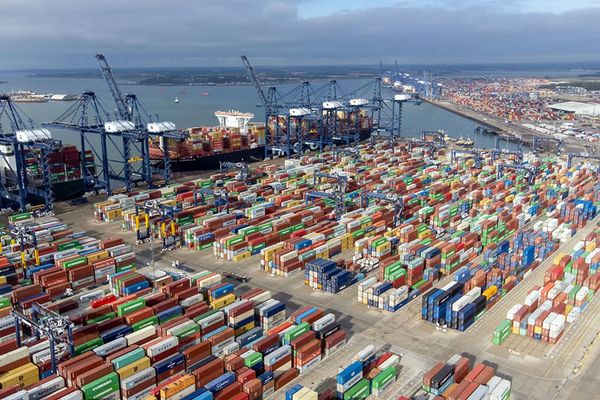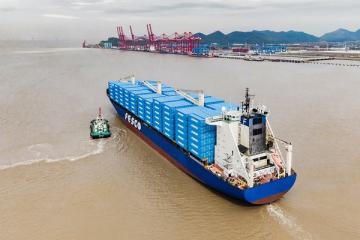
Container xChange, an online container logistics platform, has published its annual ‘shipper-owned containers (SOCs) undercover study’ today. The report throws light on how SOCs are fitting into the overall container sourcing strategy for global shippers and freight forwarders, considering the sliding consumer confidence and eventually, free-falling shipping rates in 2023.
The report studies the real quotes offered by top 50 global carriers to arrive at a comparison of how SOC (shipper owned containers) vs COC (carrier owned containers) rates fare eventually for freight forwarders. While the prices for COCs continue to free fall owing to declining demand and an influx of new build containers; SOCs still help in two key areas for freight forwarders – one, to avoid demurrage and detention charges (and other hidden costs) which is expected to increase this year as the newly build containers will enter the market and second, to add reliability and control in the container inventory mix. Especially when shipping against the container flow.
The report highlights that out of the 50 carriers that we reached out to, 42% responded. Out of the carriers who responded, 82% were able to offer both SOC and COC container moves.
Furthermore, some respondents showed a lack of cross-collaboration and well-rounded knowledge, with a few only caring about the container and not considering the ocean freight aspect.
Moreover, carriers are becoming less and less accepting of email correspondence, because they “have made considerable progress in [their] digital landscape and capabilities” as well as to “ensure that all [their] customers enjoy an improved experience.
“As the market adapts, SOCs will continue to thrive, and the movement of goods will continue. The drop in pickup charges is also a good sign, and building online booking systems for SOCs is an area of interest for development.” speaking on the future of SOCs, Adrian Degode, Senior Product Engineer, Container xChange, said.
In a recent webinar hosted by Container xChange to launch the report, a strong panel of experts discussed the SOC market and market opportunities.
“From an NVOCC perspective, the biggest advantage we find for SOCs is that it’s priced highly competitively, and we can successfully eliminate the detention charges risk, especially in the US and Canada side. With the current situation of yard congestions caused by chassis shortage, and not being able to secure return appointments with carriers on the normal COC procedures, SOCs offer ease of mind when it comes to holding off containers longer than necessary,” commented Wilson Le from Pudong Prime, Vietnam
At the webinar, it was noted that the surplus has sparked changes in container supplier operations, and a growing trend of Shipping Operating Containers (SOCs) managing the excess inventory.
“The containers are still in demand on the internal market and the containers are still used for the shipping sector. What's really changed is the place where these containers are in demand. And so mainly, the way it affects us is the volumes that we must move, of course” added Francisco Portela, Global Repositioning Manager, Silver Sea, a Container supplier based in Barcelona, Spain. A good idea for said move might be to invest in containers, Francisco thinks: “Of course, one of the points from the excess of containers worldwide means there’ll be more places containers to buy containers from, and at better prices.”
Furthering the opportunities for freight forwarders, Alfonso Vassalo - Founder & CEO - Tagustainer, a container trader, said, “in moving COC containers even more, operational costs will become more expensive. And depots are charging; I would guess they’ll double what they would usually charge to balance out money lost amidst the rate war. And that they’ll start to sustain their profits by increasing D&D charges, and that's really where we can help our customer with SOCs. In addition, SOCs have always been older historically. But with this sudden surplus, container traders will now be able to buy and provide younger containers” which of course is attractive for longevity.
However, let’s not forget the hurdles that come with SOC management at present: “It is the time-consuming process of booking SOCs. Communication with freight forwarders is essential from the beginning of the booking process to avoid back-and-forth emails and phone calls. Traders must understand the requirements of the freight forwarders, such as the need for the CSC certificate or any required year of manufacture, to provide a more precise and efficient response.” Afonso adds.
In conclusion, the container industry is reacting to address the surplus equipment and price volatility. Companies must be adaptable to these changes to remain competitive and should focus on diversifying their markets while keeping an eye on domestic demand. Additionally, customers are increasingly seeking more visibility into container prices, availability, and demand to prepare for times of uncertainty.





